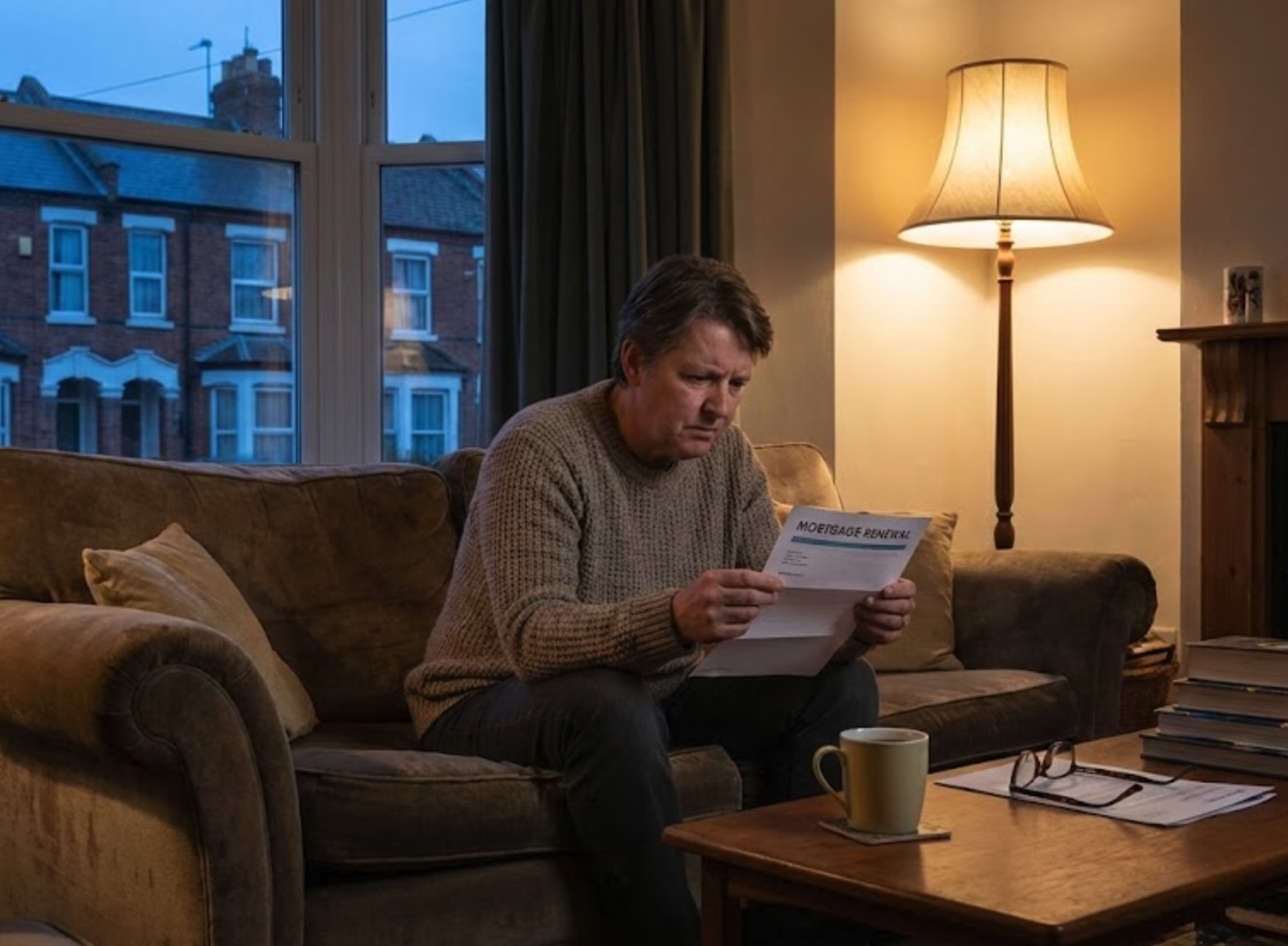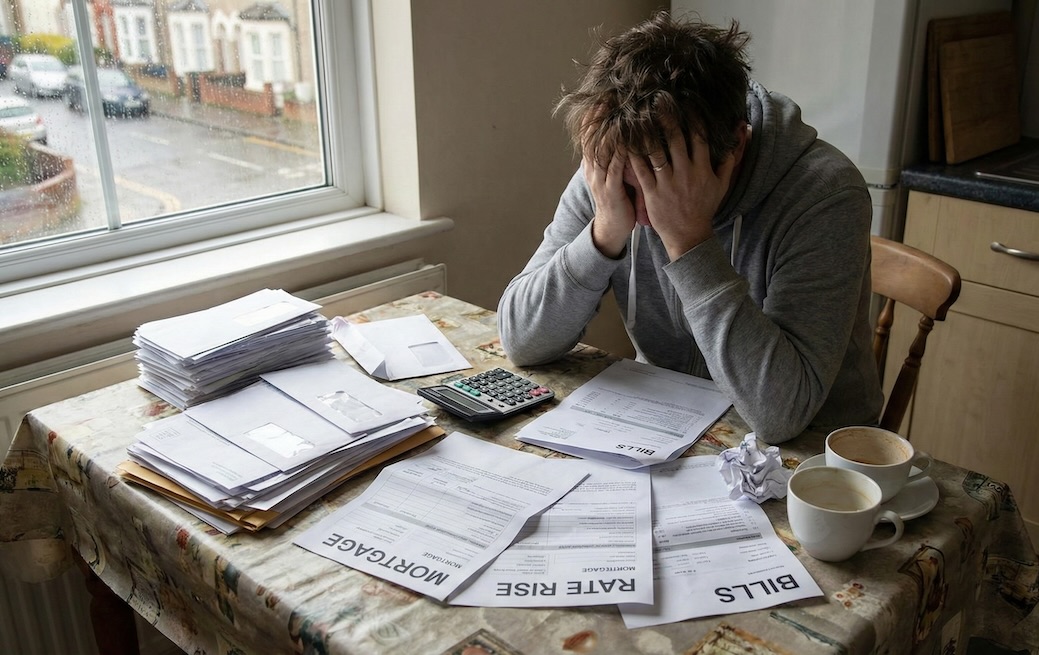How Much Do You Need To Save To Buy A House?
Table of Contents
- What Exactly Is a Mortgage Deposit?
- Why Does the Deposit Size Matter?
- How Much Deposit Do You Need?
- Loan to Value (LTV): What Does It Mean?
- What Is the Average Deposit in the UK?
- Do You Need a Bigger Deposit with Bad Credit?
- Self-Employed? Here's What You Need to Know
- Buying a Second Home
- Considering Buy-to-Let Properties
- What If You Can't Save a Big Deposit?
- Shared Ownership
- Right to Buy
- Guarantor Mortgages
- Can You Get a Mortgage Without a Deposit?
- What Happens to Your Deposit?
- Remortgaging and Deposits
- Moving Home
- Personal Experience: Saving for My First Home
- Tips for Saving a Deposit
- Using Mortgage Calculators
- Final Thoughts
Buying a home is a big step, and one of the first hurdles you'll face is saving up for a mortgage deposit. But how much do you really need? Let's dive into the world of mortgage deposits to help you understand what to expect.
What Exactly Is a Mortgage Deposit?
When you're ready to buy a house, the bank or lender won't usually cover the entire cost of the property. They expect you to put down some money upfront, called a deposit. This deposit is a percentage of the property's total price and shows the lender that you're serious about buying.
Why Does the Deposit Size Matter?
The size of your deposit can have a big impact on your mortgage. A larger deposit means you'll need to borrow less money from the lender. This can lead to:
- Lower monthly repayments
- Better interest rates
- More mortgage choices
Think of it this way: If you're buying a car, paying more upfront reduces the amount you need to finance, which can save you money in the long run. It's the same with mortgages.
How Much Deposit Do You Need?
In the UK, most lenders ask for a deposit of at least 5% of the property's value. However, a deposit of 10% to 15% is often considered healthier. For example, if you're looking at a house priced at £200,000, your deposit options might look like this:
- 5% deposit: £10,000
- 10% deposit: £20,000
- 15% deposit: £30,000
The more you can put down, the less you'll need to borrow. This not only lowers your monthly payments but can also make you more attractive to lenders.
Loan to Value (LTV): What Does It Mean?
When discussing mortgages, you'll often hear the term "Loan to Value" or LTV. This is the ratio of the loan amount to the value of the property. A lower LTV means less risk for the lender, which can result in better interest rates for you.
For instance, if you have a 10% deposit, your LTV is 90%. If you have a 20% deposit, your LTV drops to 80%.
What Is the Average Deposit in the UK?
For first-time buyers, the average deposit is just under 15% of the property's value. If you're moving from one home to another, the average deposit is higher, around 25%. That's because home movers often use the equity from their current property as a deposit for the next one.
Do You Need a Bigger Deposit with Bad Credit?
If you have a less-than-perfect credit history, some lenders might ask for a larger deposit to offset the risk. However, there are specialist lenders who may accept smaller deposits even if you have bad credit. Your deposit requirements will depend on factors like:
- The type of credit issues you've had
- When the issues occurred
- The amounts involved
It's a good idea to speak with a mortgage advisor who can guide you through your options. They can help you find lenders that suit your situation and potentially save you money.
Self-Employed? Here's What You Need to Know
You might wonder if being self-employed means you need a bigger deposit. Generally, that's not the case. Lenders don't usually require a larger deposit just because you're self-employed. However, they will want to see proof of income, typically over the last two to three years.
If your income is steady and well-documented, you should have access to the same deposit terms as someone who is employed. On the other hand, if your income varies or is hard to verify, a larger deposit might strengthen your application.
Buying a Second Home
If you're looking to buy a second home, be prepared to put down a larger deposit, usually at least 25%. Lenders see second homes as higher risk since you'll have two mortgages to manage. You'll need to prove that you can afford both mortgages, which might involve stricter affordability checks.
Considering Buy-to-Let Properties
Interested in becoming a landlord? Buy-to-let mortgages often require a minimum deposit of 20%. Lenders view these properties as higher risk because there might be times when the property is empty, meaning no rental income to cover the mortgage payments. As a result, interest rates are usually higher, and deposit requirements are steeper.
If you're exploring this option, our Affordability Calculator can help you understand how much you might be able to borrow for a buy-to-let mortgage.
What If You Can't Save a Big Deposit?
Saving a large deposit can be challenging. If you're struggling to save enough, there are options available:
Shared Ownership
With shared ownership, you buy a portion of a property, usually between 25% and 75%, and pay rent on the rest. This means a smaller deposit since it's based on the share you're buying. Over time, you can buy more shares in the property when you can afford to.
Right to Buy
If you're living in a council property, the Right to Buy scheme allows you to purchase your home at a discounted price. Many lenders accept this discount in place of a deposit, making it easier to get on the property ladder.
Guarantor Mortgages
If you have a family member willing to help, a guarantor mortgage might be an option. Here, your guarantor uses their own property or savings as security for your mortgage. This can sometimes allow you to get a mortgage with a smaller deposit, or even no deposit at all. Remember, this is a big commitment for your guarantor, as their assets are at risk if you can't make your payments.
Can You Get a Mortgage Without a Deposit?
While 100% mortgages (no deposit required) are extremely rare, they do exist. However, they come with strict requirements. You'll need an excellent credit score, a strong employment history, and high disposable income. Only a handful of lenders offer these mortgages, and they often require a guarantor.
What Happens to Your Deposit?
Your deposit is a commitment toward owning the property. Once you've paid it and the sale completes, you don't get it back. However, it reduces the amount you need to borrow, and over time, as you pay off your mortgage, you'll build equity in your home.
If you decide to sell your home in the future, any equity, including your original deposit, can be used toward the deposit on your next property or other expenses.
Remortgaging and Deposits
When it's time to remortgage, you won't need to provide a new deposit. Instead, lenders will consider the equity you've built up in your home. If your property's value has increased or you've paid down a significant portion of your mortgage, you might have access to better deals with lower interest rates.
Moving Home
If you're moving to a new house, you can often transfer your existing mortgage to the new property, a process called porting. If your new home is more expensive, you may need to borrow more money. The equity from selling your current home can serve as the deposit for your new mortgage.
Personal Experience: Saving for My First Home
I remember when I was saving for my first home. It felt like an uphill battle. Cutting back on little luxuries, saving every extra pound, it wasn't easy. But setting clear goals and tracking my progress made a big difference. I also used an Affordability Calculator to understand how much I could realistically borrow.
When I finally reached my deposit goal, the sense of achievement was incredible. Not only did it open doors to better mortgage deals, but it also gave me confidence throughout the buying process.
Tips for Saving a Deposit
Here are some strategies that might help you save for your deposit:
- Create a budget: Track your income and expenses to see where you can cut back.
- Set up a separate savings account: Keep your deposit funds separate to avoid dipping into them.
- Automate your savings: Set up a standing order to transfer money into your savings account each month.
- Reduce unnecessary expenses: Consider eating out less or canceling unused subscriptions.
For more tips, check out our blog post on How to Start Saving for Your First Home.
Using Mortgage Calculators
Mortgage calculators are handy tools that can help you plan your home-buying journey. They let you explore different scenarios and understand how your deposit affects your mortgage.
Final Thoughts
Saving for a mortgage deposit might seem daunting, but understanding how it works can make the process less stressful. Remember, the bigger your deposit, the better position you're likely to be in when applying for a mortgage. But if saving a large deposit isn't feasible, there are still options available.
Don't hesitate to seek professional advice. A mortgage advisor can help you navigate your options and find a solution that fits your circumstances. After all, buying a home is one of the biggest decisions you'll make, and you don't have to go through it alone.
If you're ready to take the next step or just want to explore your options, consider reaching out to a mortgage expert. They can provide personalized guidance to help you on your journey to homeownership.
For more information and resources, visit our blog at Mortgage Mapper Blog.

![What Is The Minimum Down Payment (Deposit) For A House In The Uk? [2026][Short Version]](https://mortgagemapper.com/featured-images/what-is-the-minimum-down-payment-deposit-for-a-house-in-the-uk-2026-short-version.jpg)
